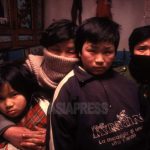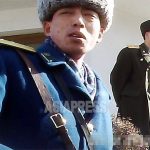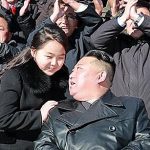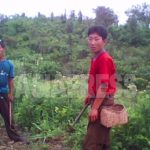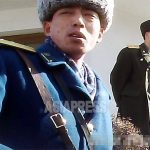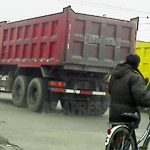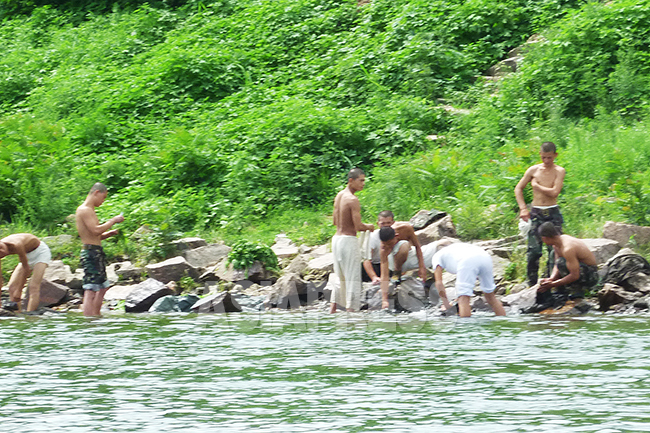
Crimes committed by veterans after up to eight years of military service has long been a social problem in North Korea. In the past few years, most have been forced to work on understaffed farms and coal mines, leading to desertions, violence, and robberies. Troubled by this situation, the authorities are exploring new ways to deal with the problem, such as grouping the veterans near their hometowns. (Jiwon Kang / Sungjun Jeon)
◆ Veteran soldiers are a nuisance to the government…they have difficulty adapting to society after a long time in the military
In North Korea, a typical adult male is required to join the military at age 17 or 18, when he graduates from upper middle school (the equivalent of high school). Each spring, ASIAPRESS has conducted direct surveys of the North Korean military's recruitment and post-deployment through officials at the Military Mobilization Department, part of the Reserve Forces Division of the Ministry of Defense.
Beginning in 2023, men have been required to serve eight years of compulsory military service. Unlike men whose military service is compulsory, female volunteers just serve for five years. However, from March 2021, the number of years were reduced from 13 to 8 for men and from 8 to 5 for women.
It is not easy for young men to reintegrate into society after being cut off from the outside world during their most impressionable years. They are often unable to adapt to the neighborhoods and workplaces where they are deployed, causing serious social problems such as absenteeism, fights, theft and robbery, which are a nuisance to the authorities.
A major reason for the social maladjustment of veterans is North Korea's military mobilization policy, which imposes a long period of military service, one of the longest in the world. A more direct cause is the policy of reassigning veterans, especially in groups.
Assigning soldiers this way means that discharged soldiers are sent en masse to large construction sites, rural areas, and coal mines, regardless of their desires or where they come from. The practice has been used in the past as a way to fill labor shortages at the national level.
This policy led to growing dissatisfaction among veterans and was a major cause of various incidents and accidents at the sites.
In this sense, this policy change can be seen as a response to mitigate the side effects of mass deployment, which is the main cause of veterans' social maladjustment to society.
◆ What has changed?
North Korean authorities have decided to mobilize veterans for major construction projects in North Hamgyong Province this year by forming shock troop teams by region or class. The authorities have informed veterans of the policy and plan to hold events, including rallies, to implement the policy. On February 7, an ASIAPRESS reporting partner in Musan County, North Hamgyong Province, said
"This year, the discharged soldiers will not be deployed in groups, but will be grouped by province, city and county to form shock troop units and organized into work groups."
* Shock troop units: Specialized civil engineering organizations mobilized for national construction projects. There are two types: "permanent" units, recruited mainly from the Youth League and serving for about three years, and "temporary" units, recruited for projects from workplaces and party members.
Party cells: The lowest level organization of the Workers' Party of Korea where individual party members directly lead, manage and control party life. The cells consist of about 5 to 30 party members and are headed by a party cell secretary.
This is a change from the previous practice of assigning veterans to existing party organizations at their places of deployment, in the sense that veterans can form their own organizations in their hometowns.
However, it would be more accurate to say that this is just an extension of the previous “group deployments”: the state still decides the path of young people while overriding their wishes and desires.
◆ Ordinary people try to find the best way forward despite confusion
The unexpected change in the government’s policy has left parents of military-age children bewildered.
"An acquaintance's son was discharged from the army this year, and he was looking for a job at home, and then he got a phone call...They said they're going to form some groups, some battalions of discharged soldiers in Musan County, or battalions of speed battle youth shock troop units, and send them to their hometowns.”
Meanwhile, some people are finding ways to make the best of their situation. For example, those who have obtained recommendations for university can be removed from the group deployments if they pass the university entrance exam. This has led some parents to go into debt to obtain bribes to get university recommendations for their children.
While not a radical improvement to the existing situation, it will be interesting to see if these recent policy changes can help veterans reintegrate into society.
※ ASIAPRESS communicates with reporting partners through Chinese cell phones smuggled into North Korea.
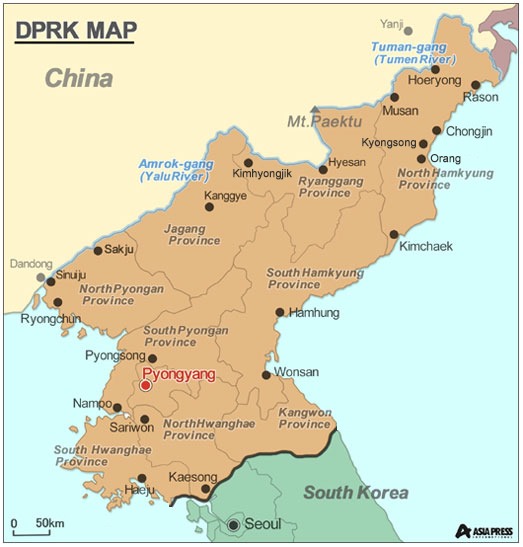
- <Inside N. Korea> Preparation for construction mobilizations for Kim Jong-un’s “20x10 policy” are complete, but there’s already unrest and complaints among workers over supplies of food
- <Inside N. Korea> Wigs, fake eyelashes emerge as a driver of exports abroad, but laborers work in very poor conditions
- <Inside N. Korea> Efforts to implement the“20x10 policy for regional development” begin…As people are mobilized to construction projects, complaints start to emerge
- <Inside N. Korea> Kim Jong-il birthday festivities smaller than in the past…special rations reduced due to lack of funds…focus more on labor mobilizations, with some events canceled
- <Inside N. Korea> S.Korea is the enemy…Trends after Kim Jong Un’s “anti-unification policy” announcement (1) People are surprised and confused
